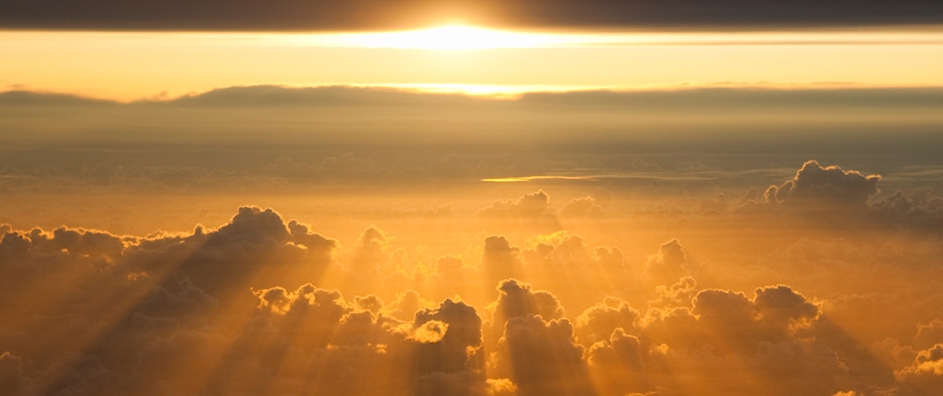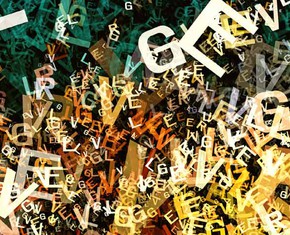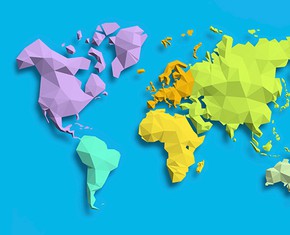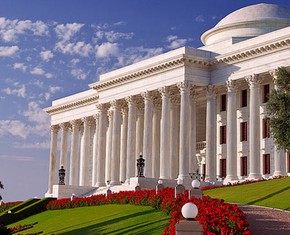The views expressed in our content reflect individual perspectives and do not represent the authoritative views of the Baha'i Faith.
So far in this series of essays we’ve considered two implications of Muhammad’s title, “the Seal of the Prophets.”
One universal meaning is that he is the confirmer and protector of the revelations of the past. Another meaning of “Seal” is last. Baha’is accept Muhammad’s finality within the Islamic dispensation itself. Unlike Moses and Jesus, Muhammad was not followed by a series of prophets bringing supplemental revelations.
Now, let’s turn to the ideas of ‘Prophet’ and ‘Messenger’. The Arabic word for ‘Messenger’ (Rasūl) is based on a verb meaning ‘to send’. In certain contexts, it can refer to someone sent with a message from anyone, whether God or man. It is used once in the Qur’an for an ordinary courier (Qur’an 12:50). It can also indicate a high level of inspiration—higher in fact than ‘prophet.’
As we saw in the last article, a prophet (Nabī, announcer, foreteller) in the Islamic sense often refers to supporting prophets, such as Aaron, who reinforce the message of a major prophet—Qur’an 19:52-54. But Islamic usage reserves the title of ‘messenger’ (Rasūl) to these major prophets, who reveal a book containing laws for a new dispensation.
This shows us one way to understand Muhammad as the Seal of the Prophets, consistent with the coming of future messengers.
Yet the Shi‘a hadith book Usul al-Kafi makes a further qualification :
This is the difference between the Messenger (Rasūl), the Prophet (Nabī) and the Imam: Gabriel descends upon the Messenger; he sees Gabriel and hears his speech, and inspiration descends upon him. In his sleep, he may also see the like of Abraham’s vision. The Prophet may hear Gabriel’s speech, or may see his form and hear him not. The Imam hears Gabriel’s speech but does not see his form. – Vol. 1, Hadith 435.
This defines all three–Messenger, Prophet and Imam–in relation to the angel Gabriel, who represents the Holy Spirit in Islam.
Now, suppose a bearer of God’s message came whose inspiration descended from a more comprehensive source than the angel Gabriel. This person would certainly be a ‘Messenger’ of God in the wider sense of the word, but would he be a ‘Messenger’ in this narrower theological sense?
Although we cannot begin to fathom its full implications, this question is directly relevant to our subject. In his Tablet of the Temple, Baha’u’llah writes:
Say: The Holy Spirit Itself hath been generated through the agency of a single letter revealed by this Most Great Spirit, if ye be of them that comprehend. – Baha’u’llah, Summons of the Lord of Hosts, pp. 26-27.

The “Most Great Spirit” refers to the Maid of Heaven, who appeared to Baha’u’llah in the darkness of Tehran’s worst dungeon and inaugurated his revelation. She is the Baha’i equivalent of the Burning Bush in Judaism, the Dove in Christianity, and the angel Gabriel in Islam.
So, if we take Baha’u’llah’s statement at face value, his revelation came directly from the Most Great Spirit, the source of the angel Gabriel himself. In this way Baha’u’llah’s revelation transcends the ideals of both prophethood and messengership as this Shi‘ite narration defines them.
This does not mean that any previous prophet was inferior to Baha’u’llah—God forbid! A key teaching of the Book of Certitude affirms that all God’s Manifestations are one in essence. Each embodies the same infinite attributes, but they express them in different ways according to humanity’s need and capacity. To say that the Baha’i revelation descends directly from the ‘Most Great Spirit’ reflects humanity’s unique capacity in this day.
Notice how Baha’u’llah concludes his remarkable statement: “if ye be of them that comprehend.” Probably no one this side of eternity comprehends the distinction between the Holy Spirit and the Most Great Spirit. Yet key differences exist between the Baha’i revelation and those of the past—differences that we can view as evidences of this shift in the nature of revelation.
Past revelations tended to be future-oriented. Their prophets prophesied (or ‘announced,’ Arabic nabba’ū) an awesome renewal and kingdom of God still to come—the ‘Great Announcement’ (an-Nabā’ al-‘Aẓīm) of Qur’an 78. The Baha’i Faith announces the message that the kingdom of God has come. Christ prophesied that in the resurrection, his followers would become like angels in heaven (Luke 20:36). The Baha’i Writings exhort us to become angels on earth—and to use God’s renewed guidance to transform this earth in the image of heaven.
There is a shift in viewpoint between the Bible, the Qur’an and the Baha’i Writings. The Bible’s events are told from a human perspective. The Qur’an retells much of the biblical narrative, but from God’s perspective. The linear sequence of events is completely subordinated to the overwhelming transcendence of God. The humanity of Muhammad, too, disappears in the voice that came through him.
The voice that speaks through Baha’u’llah is no less transcendent, but at the same time, paradoxically, often speaks from the ‘location’ of his humanity—within history, time and space. This exemplifies one of the deep truths of the Baha’i Faith—that the arena of the divine attributes is the created world itself. We are made from God’s attributes, and for the first time, have the capacity as a species to start acting the part.
So, in a sense, Muhammad completed the cycles of both messengership and prophethood—or, as another hadith says, was the final ‘brick’ in the majestic edifice of prophecy. ‘Messengers’ and ‘Prophets’ in the broadest sense will have no end. Yet Muhammad sealed—confirmed and completed—the foundation Adam began. Baha’u’llah, God’s messenger for our day, instead of pointing us to a kingdom still to come, invites us to share in the fulfillment of prophecy, right here and now:
This Day…is unique, and is to be distinguished from those that have preceded it. The designation “Seal of the Prophets” fully revealeth its high station. The Prophetic Cycle hath, verily, ended. The Eternal Truth is now come. – Baha’u’llah, Gleanings from the Writings of Baha’u’llah, p. 60.
You May Also Like
Comments

















I am a Baha'i and this is a great explaination on this subject. Thanks again Dan.